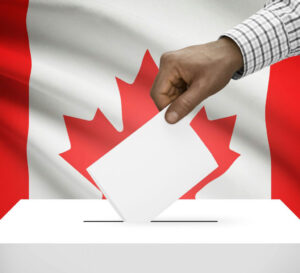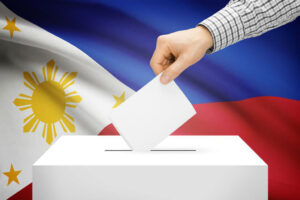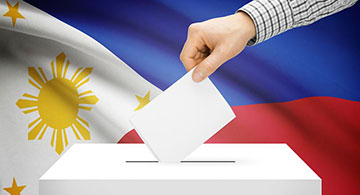 2019 is an election extravaganza. The Alberta Provincial election is happening on April 16th; the Philippine mid-term election is on the 13th of May and of course the Federal election in Canada will be this fall. Filipinos have been engaged in the discussions among themselves about the elections in their communities, at gatherings and on social media.
2019 is an election extravaganza. The Alberta Provincial election is happening on April 16th; the Philippine mid-term election is on the 13th of May and of course the Federal election in Canada will be this fall. Filipinos have been engaged in the discussions among themselves about the elections in their communities, at gatherings and on social media.
In the Philippines, the kid gloves have been off for quite some time now. President Rodrigo Duterte’s supporters have been bashing the “yellowtard”. While the Liberals have their own criticism of the “Dutertards”. It’s very explicit exchange of un-pleasant words against each other. The Philippine diaspora also participates in the Canadian elections, Filipinos that have been in Canada for a while traditionally vote for either the Conservative or the Liberal Parties. However, a growing number of second-generation Filipinos has been drawn to the NDP or the Green Party. They are more open to new ideas as well.
 According to Statistics Canada, there are more than 851,000 Filipinos that live in Canada and more than 175,000 in Alberta. But despite making up 2.3 percent of the Canadian population, the community’s representation in Canadian politics has been sparse. Historically, only one Filipino was elected in Parliament in the last 20 years. A Winnipeg based Filipino doctor Rey Pagtakhan became a Member of Parliament under Prime Minister Jean Chrétienin 1998 and Prime Minister Paul Martin before his defeat in the 2004 election.
According to Statistics Canada, there are more than 851,000 Filipinos that live in Canada and more than 175,000 in Alberta. But despite making up 2.3 percent of the Canadian population, the community’s representation in Canadian politics has been sparse. Historically, only one Filipino was elected in Parliament in the last 20 years. A Winnipeg based Filipino doctor Rey Pagtakhan became a Member of Parliament under Prime Minister Jean Chrétienin 1998 and Prime Minister Paul Martin before his defeat in the 2004 election.
There hasn’t been a Federal MP since. In the coming Provincial elections in Alberta, there are Filipinos vying for positions as Minsters of the Legislative Assembly. One is Marjorie Carmona Newman, who is an immigration consultant running under the United Conservative Party in Edmonton-Glenora and the other is community worker Cesar Cala,who is running for the New Democratic Party in Calgary East. The first Filipino in the Alberta Legislature was the disgraced Conservative Party member and former immigration consultant Carl Benito in 2008. Benito served only one term (2008-2012) and did not win a nomination for a second term for Edmonton-Mill Woods. He is now facing charges of immigration fraud and the Immigration Consultants of Canada Regulatory Council (ICCRC) suspended his licence to practice.
The Philippine political culture.
Patronage politics is alive and well among our kababayans, in the Philippines or here in Canada. David Timberman, author of “A Changeless Land: Continuity and Change in Philippine Politics” divides it in four categories:
1. The Primacy of Kinship Ties – According to Timberman, in the context of Philippine society, the family could serve as a bridge to getting “power”. For Filipinos, families extend to both the father’s and the mother’s side. Unrelated families of equal socio-economic status bond together through ritual kinship (godfathers and godmothers), which further broadens the scope of “relatives”. “Palakasan” or “access,” is, if you are a direct relative of someone in power it’s more likely that you’ll get a chance of attaining a position of power than if you’re not “connected.” That’s why it’s no wonder that political dynasties are prevalent in our country. Some people want godfathers or godmothers who hold positions of authority, so that they could use this “connection” to get what they want politically and somehow get even a little chunk of that power their “Kompadre or Komare” has. All these results from closeness with “family,” little trust with “non-family”.
2. “Pakikisama” – It’s when we give in to what others want, so that we won’t be ‘out.’ We don’t say anything against anyone to have that smooth relationship. It’s being less confrontational in order to avoid conflict. How does this appear in our political culture? Since more importance is placed on maintaining a good relationship with people, when it comes to discussing political issues, they turn to euphemisms and “parinig” just to be on the safe side.
3. “Utang na Loob” – This is another one of those ‘classic Filipino characteristics.’ Utang na loob is indebtedness to someone who has done you a favor. This obligation to repay would continue to be inside us unless we do make up for it. If you don’t do so, you’d appear ‘bastos’ or better yet, ‘makapal ang mukha,’ something that we all hate to be tagged as. The social elite particularly loves this. The people are obliged to give back the good deed in any way they can, obviously, usually not through money, but through votes. Votes for the givers when they run for office, votes for those they favor, or votes for those they are related with. David Timberman, gave a classic example: the Marcos loyalists.
4. Personalistic Politics – A common thing about painted walls, restored roads, waiting sheds or health access cards in the Philippines are the words “A Project of…” or “Priority project of…” This is what you call personalism.
Timberman said that personalism appears in Philippine politics when certain actions undertaken are directly connected to particular individuals instead of the institutions or the system itself, but money given to politicians are from the people’s taxes, not from their pockets. Why, then, is all the credit given to them when a road is fixed, or a waiting shed is constructed? Problem is, Filipinos connect certain decisions that shape our lives to one or two individuals instead of the impersonal government or system. They don’t really know if funds came from the government or from the official’s own pocket, yet the thanks are all given to the individual.
These political traits create Bureaucracy, nepotism, massive graft and corruption in the government. Candidates practice excessive and lavish spending during elections. Black propaganda, mud-slinging and other dirty tactics to discredit political opponents are very common and lastly, politics are focused on personalities and not on genuine platforms of government. These practices were brought by the Filipino diaspora in Canada.
As anywhere else candidates come knocking on our doors only during elections and even then, for our community, candidates that have the most selfies with the community gets our vote regardless of their political stand on issues. The Filipinos abroad care more about the culture of personalities over issues. As Former Philippine National Police chief-turned-senatorial candidate Ronald “Bato” dela Rosa said in one of his sorties “Mag-prangkahan tayo. ‘Yung mga tao na ‘yan, pupunta diyan purposely ba para lang makinig ng issues? I don’t think so. Ang mga tao na ‘yan pumupunta diyan para sumaya. Kung mapatawa ‘yung tao diyan, gagaan na ‘yung loob sa’yo, (Let’s be frank. Those people, would they purposely go just to listen to issues? I don’t think so. Those people go there to be happy. If you make people there laugh, they’d be more at ease with you.)” Dela Rosa told CNN Philippines. Similarly, Filipinos would likely vote for a popular celebrity as their government official.
Here in Canada, Filipinos asked about the elections, some would quickly say “pagkaka-perahan bayan (will I make money out of that)?” Or they would vote for a Filipino just because they are Filipino regardless of their political stance.
If Filipinos, in the Philippines or here in Canada are serious about their aspiration to become a truly modern and intelligent democracy or be taken seriously as a political power in Alberta or in Canada, then we should see to it that serious measures are put in place to make sure that progressive ideas rather than individuals are the primary strength in the nation’s political discourse. Until then, the Philippines will be no more than an embarrassing caricature of democracy.


